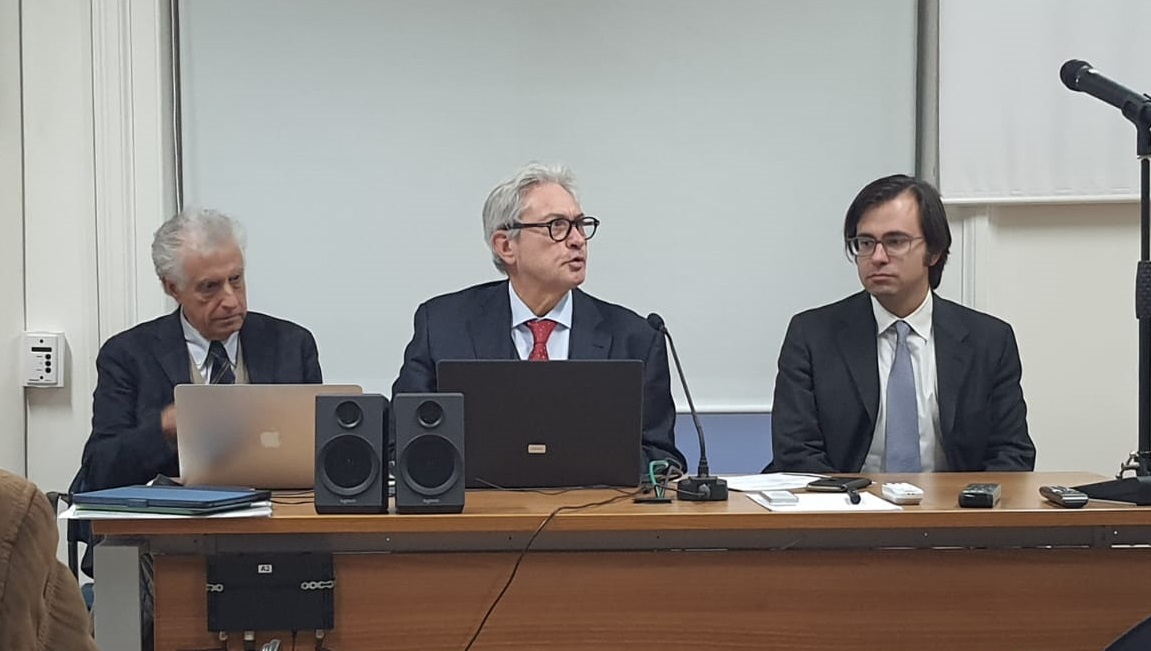Small Modular Reactors, the challenge is to invest in safety, effectiveness and transparency

Small Modular Reactors, the challenge is to invest in safety, effectiveness and transparency
They are advanced nuclear reactors, with a power of up to 300 MWe per unit, and are under development in several countries. Small Modular Reactors (SMRs), in conjunction with renewable sources, can make an important contribution to the decarbonisation process and guarantee greater independence compared to traditional fossil sources used for energy production. SMRs use nuclear fission to produce heat, which can be used directly or for electricity generation, and can use various coolants (light water, liquid metals, or molten salts). They can boast better safety features with the use of passive systems and a simplification in the construction phase.
It was discussed yesterday in Rome, during the seminar "Partnership in the EU on the licensing of SMRs (Small Modular Reactors): technology, models and applications", organized by the Order of Engineers of the Province of Rome.
ISIN also participated in the meeting, with a speech dedicated to the EU partnership on SMRs, with particular reference to authorization processes.
In June 2021, driven by industry and research institutions, the European Commission organized a first European-level workshop on Small Modular Reactors, from which the proposal for a European SMR Partnership was born as a collaboration scheme, in compliance with distinct roles, between Industry, research and technological development organisations, the European Commission and the competent regulatory authorities. The partnership aims to promote the conditions for the use of the new SMR technology starting from 2030.
The first phase, called Pre-Partnership, recently concluded, was coordinated by a Steering Committee and operated according to 5 lines of activity (Work Streams). The activity of the 5 WS concluded last summer and the results were presented in a Stakeholder Forum held on 26 October 2023. (https://energy.ec.europa.eu/news/european-nuclear-energy- forum-2023-discusses-benefits-european-small-modular-reactors-smrs-2023-11-07_en).
The ENSREG (European Nuclear Safety Regulators Group), of which ISIN is part in its role as the competent regulatory authority in Italy for nuclear safety, participated in the Pre-Parnership, dealing with the issue of authorization procedures (Licensing), thus providing its contribution to improving safety checks and ensuring that in the future, also for SMRs, Europe remains a reference in terms of nuclear safety of nuclear installations and safe management of radioactive waste.
During this event, the proposal was put forward that the future partnership would be based on the creation of an Industrial Alliance for SMRs, which would focus on key issues, including market development, financing modalities, industrial processes involved and the research and development activities necessary for the development of this technology.
From the perspective of the Industrial Alliance, for the obvious reasons of independence and third party with respect to the world of Industry, ENSREG will not be able to have direct participation, but will continue its activities connected with the development of licensing and verification procedures security in a relationship of dialogue and discussion. In this context, the possibility that the various competent regulatory authorities represented in ENS
REG carry out joint safety assessments on projects considered already mature appears to be of particular importance.
At the same time, the European Commission (DG ENER) launched a study to perform a comparative analysis of the nuclear safety regulatory framework and regulatory practices envisaged for SMRs in different Member States. The one-year study began in January 2023 and is nearing completion. It includes data collection, the organization of two workshops and the preparation of interim and final reports.
With the awareness that the deployment of SMRs on the national territory requires an overall evaluation that involves multiple stakeholders, including governments, regulatory authorities, industries, local communities, during the seminar space was also given to the discussion of the challenges linked to this technology , without neglecting the long-term management of radioactive waste, according to methods already adopted in various countries, for which today Italy is still committed to finding a solution that ensures the disposal of waste resulting from the past nuclear program.
Transparency in decision-making and communication is key to gaining public approval and ensuring the success of such projects. Equally useful is having a coherent and updated regulatory framework, as well as the continuous need to invest in research and development and training of expert personnel.
